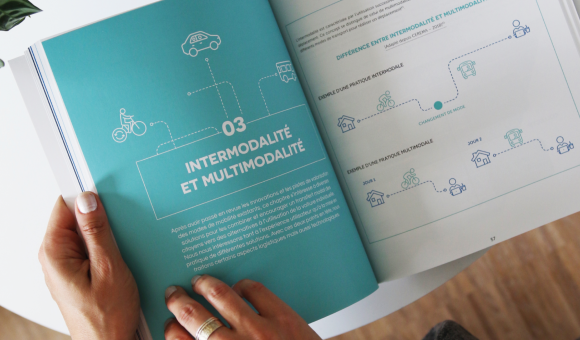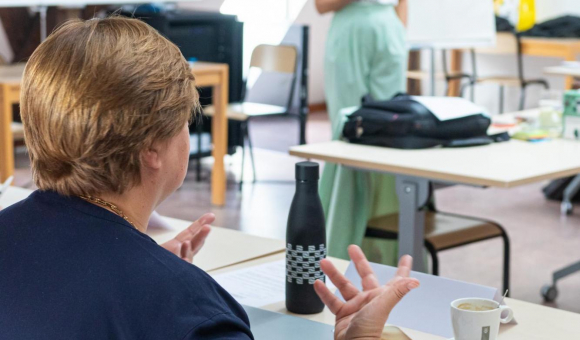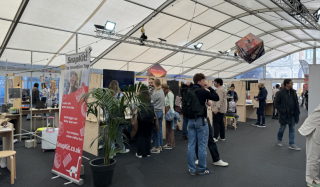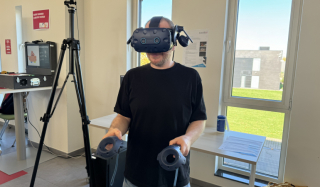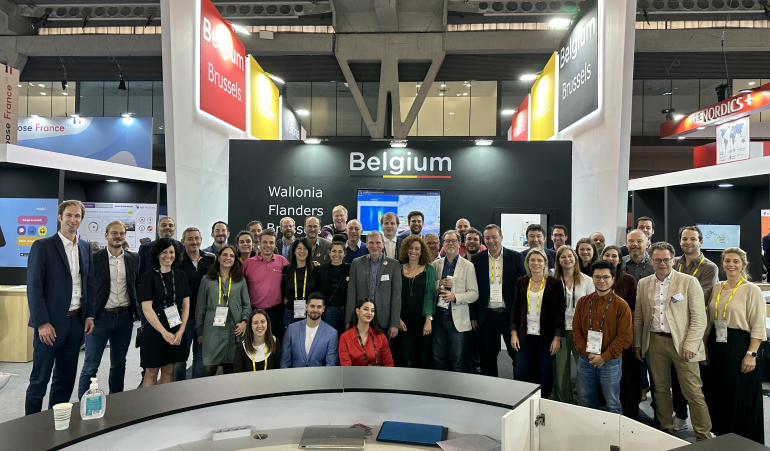
The development of cities and territories requires flexibility, curiosity and constantly updated skills. Wallonia and the Wallonia-Brussels Federation intend to be in tune with all developments in this area and, in particular, through the Smart City Institute (HEC ULiège), to enable dialogue and a search for solutions by public authorities, citizens, multinational and local companies, associations, NGOs, universities, etc. within the territory.
"With this Smart City dynamic, the different stakeholders can engage in a sustainable transition process to ensure economic prosperity, social well-being and respect for natural resources in this territory... while using technologies (digital technologies, engineering, hybrid technologies) as a facilitator," explains Audrey Lebas of the Smart City Institute (SCI).
She considers that, "with climate change and urbanisation phenomena (more than 75% of the population will live in cities in the coming years), there are new expectations, and Smart Cities offer new possibilities. To ensure a real transition, the approaches and projects must be undertaken at different levels of power: local, provincial and regional. In practice, the municipalities are interested in a variety of themes (mobility, governance, energy, well-being, etc.). The intermunicipal economic development agencies (Idelux, Spi, Ideta) also play an important role as the Region's operational specialists."
Quality material exists to feed into this dialogue, such as the Smart City Practical Handbook: a collection to guide municipalities step by step towards the smarter and more sustainable management of their territory. Through this concept of collection, the aim is to provide a new practical guide each year, to support the territories step by step and continuously feed into their reflections. Since the end of 2022, there have also been educational booklets available that allow a deeper understanding of one or more concepts that are covered in the guides but not developed in detail. The Smart City Institute has also developed models such as the Smart Project Management Model and the Smart City Maturity Model to support Smart City project managers.
Concrete examples and financing
This Smart City approach has a practical impact on the daily life of the population all over the world since it proposes answers to the challenges and issues that the public stakeholders are confronted with on a day-to-day basis, such as mobility, economy, environment, population, governance, urban planning and quality of life. Last November, the Smart City Expo in Barcelona revealed several concrete solutions, as Sofia Malbec of WBI's R&I Department, who was present in Barcelona, points out: "This dynamic can provide faster responses to the needs of citizens for improving services (mobility, health, etc.) by sharing data, optimising territorial management (saving time), stimulating innovation, creating an environment conducive to attracting new talent ... while reducing the environmental impact."
Many synergies were created in Barcelona: "Many attendees stopped by our booth organised by the Wallonia Export-Investment Agency. We took part in this trade fair with universities, which were very interested as they have Smart City researchers with UNamur, UCLouvain and the Smart City Institute of Liège. The trade fair obviously allowed us to discover the ecosystem of other countries and other researchers, and to participate in conferences on new themes."
Several concrete examples allowed a better understanding of the impact on the daily life of the population: application for having connected cities, information for the municipalities on dustbins or the management of red lights, reflection on pedestrian crossings with green or red lights that light up on the ground for people who walk while looking at their mobile phone and not the lights, as well as useful applications for the Silver economy for elderly people.
The issue of financing was not forgotten in Barcelona: "We were also able to expand our knowledge of public and private financing for Smart Cities projects. There are also opportunities to receive European funds to develop projects... with universities and/or companies."
Sofia Malbec mentioned a few projects such as "parking spaces for electric scooters. In Wallonia, stakeholders are also working on projects to develop on-demand parking solutions, which would connect motorists with private car park managers. They are also working on a project that would optimise the use of photoelectric energy produced at home and reinject it into the car at night."
The impact on the citizen
The municipalities play a major role in this dynamic. Many municipalities were involved on the ground in 2022, such as Mons, Walhain, Esneux, Couvin, Heron, Gerpinnes, Verviers, Stoumont and Engis. In 2021, Nassogne, Bièvre, Wasseiges, Nivelles, Soumagne, Wellin, Chimie and Chaudfontaine were already on board.
But what do citizens and municipalities think of these projects? The latest Smart City Institute barometer has taken the pulse: the Smart City is still mainly associated with the digitalisation of the municipality (84%), the improvement of quality of life (63%) and the inclusive participation of citizens and stakeholders (60%).
On the ground, the results of the barometer show that the majority of initiatives are still launched at the level of the municipality itself and, more specifically, by its elected officials: aldermen (31%) and burgomasters (26%). As for the fields of application of the projects, they mainly concern the Smart Environment (themes related to sustainable urban development, energy optimisation, waste and wastewater management, etc.) and Smart Governance (themes related to the inclusive participation of all stakeholders in the territory and to governance). Not to mention the Smart People dimension (linked to the education system as well as telecommunications, digitalisation and innovation).
There are concerns
Developing such a project is obviously not always easy, as the results of this barometer show. The obstacles include the difficulty in mobilising budgets (50%) and the problems in acquiring the necessary expertise for the planning, realisation and monitoring of projects (49%). Unsurprisingly, when asked what would help them carry out their Smart City projects, the Walloon municipalities highlighted the need for more financial support from the Walloon Region, Europe, etc. (76%), and the need for tools to train members of the administration (71%).
Specific training
Improving awareness of this issue is also essential for increasing support for these projects: in-service training programmes have been set up by the Smart City Institute and are intended for professionals from all sectors (public, private, academic, etc.) engaged or wanting to engage in a reflection on sustainable and smart transition.
By Vincent Liévin
This article is from Revue W+B no. 159, published by Wallonia-Brussels International.

